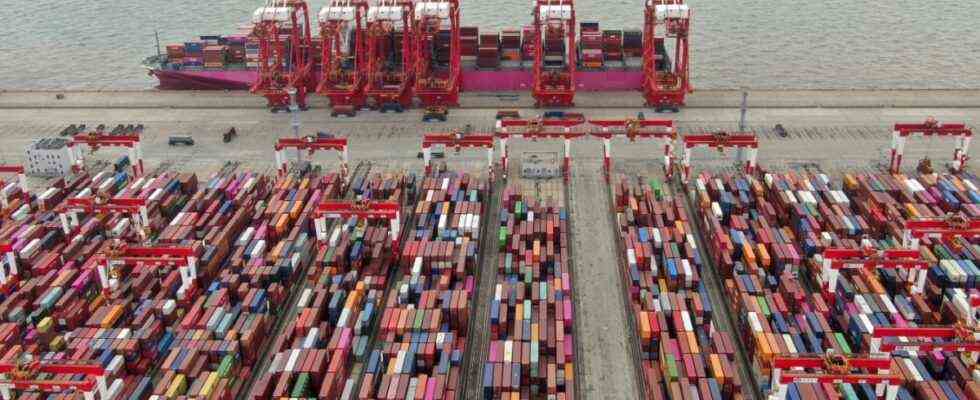It sounds like a heroic epic, like David versus Goliath: small, democratic Lithuania takes on powerful China, the second largest economy in the world, ruled by a merciless dictatorship. Now Goliath is striking back and David is asking his partners in the European Union for help. Brussels cannot refuse to do so. At the same time, however, the other EU governments have to teach Vilnius that the behavior was foolish and selfish. Because the supposed hero in this story does not act out of loyalty to principles and charity, but coolly calculated and without consideration for his allies.
Behind the escalation is Lithuania’s decision to allow Taiwan to open an embassy in Vilnius called “Taiwan Representation” and not Taipei. China does not recognize Taiwan as a state, which is why the embassies usually operate as representations of Taipei – that’s the name of the capital. Relations between Lithuania and China had deteriorated before that. Beijing took this provocation as an opportunity to delete Lithuania from its own customs system. In fact, this is a complete trade embargo.
It is clear that Europe must take the side of the democratic Taiwanese in the conflict over Taiwan. Up until the advance of Lithuania, however, it was also clear that the west would respect Beijing’s sensitivities and that Taiwan would therefore not open representations under the island name. Vilnius has terminated this consensus without consulting its partners in the EU. Anyone who wants to attribute the best to the Lithuanian government could argue that it felt a kind of moral compulsion: the Uighur genocide, the oppression of Hong Kong, the intimidation of Taiwan – someone has to take a stand against Beijing, so why not Lithuania? Here I stand, I can’t help it.
However, the Baltic republic is not rushing ahead in its relations with other terror regimes, for example in Iran or Saudi Arabia. The fact that Lithuania relies on confrontation in Beijing, of all places, has something to do with Joe Biden. The US President is taking a tough line against China – tougher than many EU countries would like – and the government in Vilnius can now present itself as a brother in spirit. The Eastern European states are concerned that Washington is paying more and more attention to the Pacific region and its enemy, China, and Europe and Russia less. The fear is that the US could relocate troops that previously served as a deterrent to Russia.
A confrontation with Beijing is inevitable
Vilnius has now reminded Biden that Lithuania is a loyal ally that the president can count on on his favorite subject, China. That can come in handy at some point. At the same time, the economic costs are low. The government itself points out that China is almost insignificant as an export market or as a place of origin for investments – a huge difference to other EU countries such as Germany.
Convenient for Lithuania, stupid for the European Union: After all, the move mercilessly reveals that the economic bloc does not have a uniform policy on China. The EU will now have to protest against the embargo. Since it violates the rules of the World Trade Organization, Brussels should also involve the WTO. That will probably not change anything. It is to be hoped that the conflict does not escalate any further.
It is completely undisputed that sooner or later the EU will have to take a harder line on China anyway. Brussels is in the process of preparing the bloc for this. This is about new rules against unfair competition from China’s state-owned corporations, about instruments for the defense against sanctions, about concepts to reduce dependency on strategically important products. If China’s policy does not change fundamentally, the EU will have to seek confrontation. But the right time, the right topic and the right strategy must be determined jointly by the EU – and not by a small Baltic republic that wants to collect diligence points from Mr. Biden.

